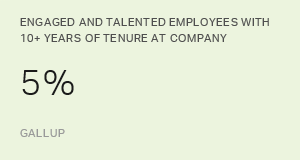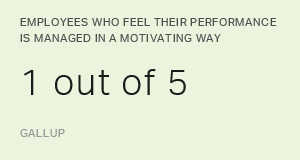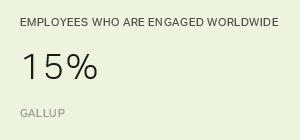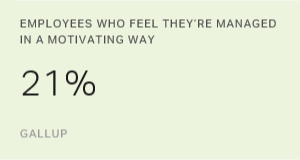Which of your employees are most likely to quit?
If you follow Gallup's analytics, you might answer that the least engaged employees quit more often. That is true -- improving engagement among your employees is one of the best ways to slow down turnover. However, there is a group of employees that merits particular attention: your most talented employees.
In our recent work with organizations across various industries, we discovered something really interesting and somewhat unsettling: Highly talented employees who are not engaged were among those who had the highest turnover in each organization -- on par with low talent, disengaged employees. In other words, when your best employees are not engaged, they are as likely to leave your organization as your employees who tend to have performance issues and are unhappy.
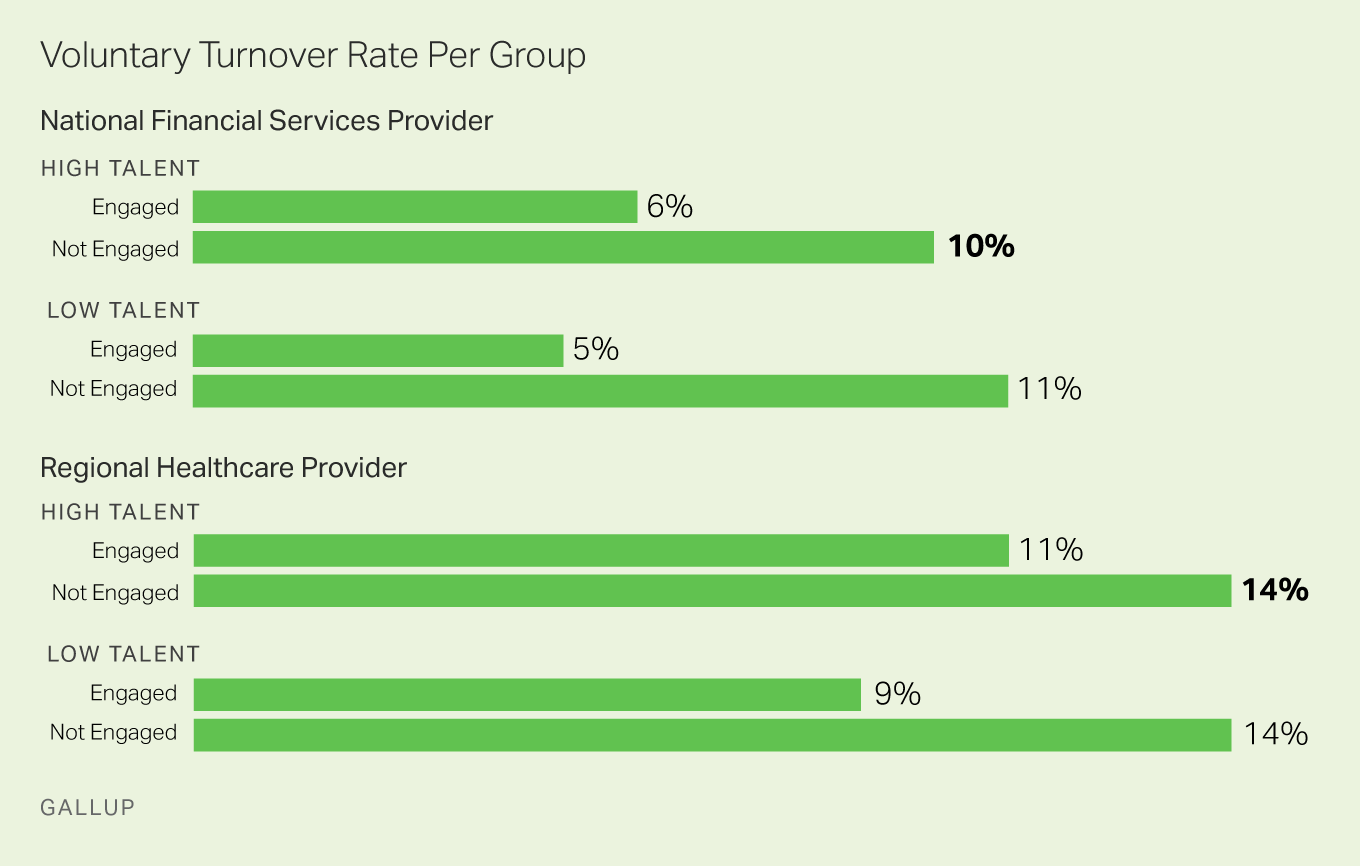
Why do they leave so quickly? We speculate that your most talented employees are more likely to have high expectations of their workplaces. They are also more likely to have other opportunities available to them. They seek out better opportunities where they can grow and develop their skills. Or they may just want to go where their gifts are appreciated and rewarded more often.
But here's the important part: You can't tell how engaged a team member is by performance alone. Engagement raises performance, but your best people may be high performers even if they are miserable. Managers make a fatal mistake if they assume that their top performers can be safely left alone.
The winning formula for long-term high performance is this:
Talent x Engagement x Tenure = High Performance
The first step is to hire for talent. When people are a natural fit for their role and assigned to do what they do best, an opportunity for achieving performance excellence is created. Once you have talent, engagement is essential -- it is the passion to show up every day and do your best work. It is much easier and more effective to engage employees who are a natural fit for their roles.
Finally, there's tenure. Many people wonder how valuable tenure is. Our analysis shows that tenure without talent or engagement has a relatively small impact on performance. (In short, you're getting about the same result year after year.) But when you have high talent and engagement, tenure pays dividends, as your best employees hone their craft into mastery.
Employees with all three -- good fit, high engagement and 10+ years at an organization -- dominate performance. They perform 18% higher than the average employee and 35% higher than a worker who lacks all three elements.
While the concept is simple, only 5% of employees have the right fit, high engagement and 10+ years at the same organization.
The cardinal sin of management is not engaging an employee who is a good fit for their role. This is true for a host of reasons:
- Truly talented people are rare.
- They are the most expensive to replace.
- They may take other high performers with them if they leave.
- They are the easiest to engage.
- And they are the quickest to leave if they are disengaged.
Ultimately, managers have one job: Hire the best talent and continuously engage them. Managers know who's talented. And they know (or should know) who's unhappy with their current situation. If they don't meet the basic psychological needs of their most talented employees, they squander years of performance gains. At worst, they lose their talent (and whoever leaves with them) to their competitors.
Analytics-based hiring tools and engagement tools (like the Q12) can help organizations identify high talent/low engagement hot zones -- but they can also be helpful as conversation starters between managers and star employees.
Not engaging top talent is a serious risk for your organization. But it is also eminently fixable when managers are trained to better understand the needs of their team members.
Learn more about how Gallup can help your managers hire, engage and re-engage high performers:
- Inquire about our analytics-based hiring solutions that allow managers to more efficiently identify and select the right fit.
- Register managers for the Leading High-Performance Teams course where they can get the tools and techniques they need to develop and engage employees.
- Listen to and share our "Why Isn't Employee Engagement Getting Better" webinar to better understand the common pitfalls of engagement and how to overcome them.
